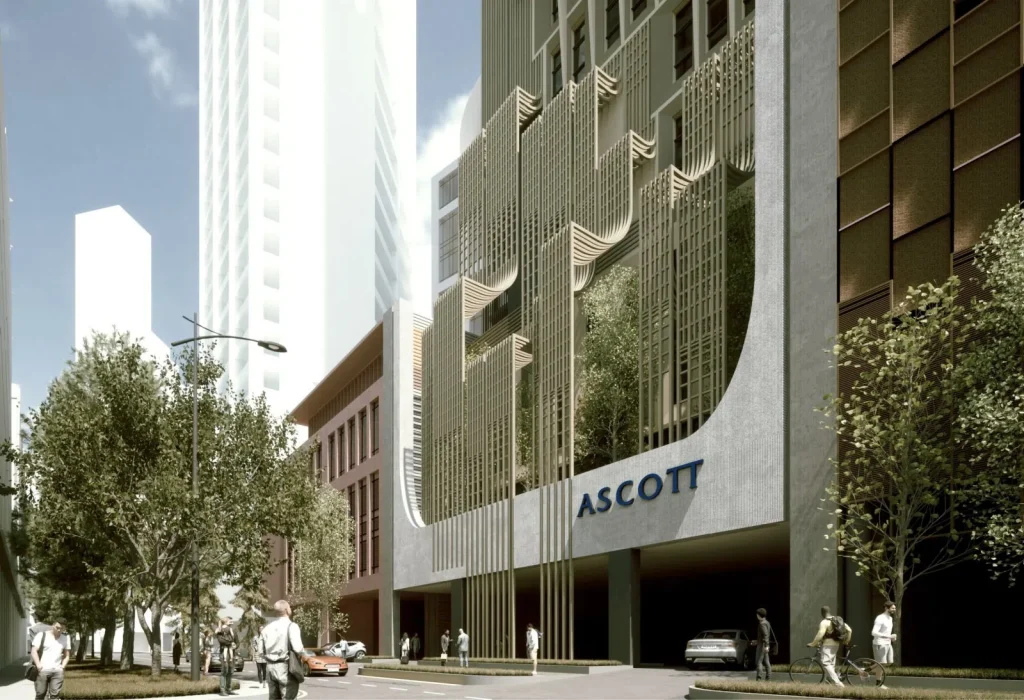[BANGKOK] The Ascott – the lodging business of CapitaLand Investment – intends to “stay agile” in the current period of geopolitical uncertainty, said its chief executive officer Kevin Goh.
“If we think the second half of 2025 is going to be more volatile, we will try to lock in more long-term stay (guests),” he told reporters in Bangkok as he outlined Ascott’s business strategy.
Goh’s comments came as the company continues to grow its presence in Asia. On Apr 25, it announced the launch of three new Ascott-branded properties in the region – the Ascott Ortigas Manila, Ascott Shenton Way in Singapore and the first Ascott property in the Chinese city of Wenzhou in Zhejiang province.
This builds on the eight new property signings in 2024, which was double the number in the previous year. In total, the Ascott brand portfolio includes more than 80 properties with over 17,400 units – both operational and in the pipeline – across 43 cities.
The expansion takes place at a time of immense economic uncertainty following the threat of US President Donald Trump’s tariffs on imports, with especially high rates for many Asian countries such as China, Vietnam and Thailand. The implementation has since been paused for 90 days until July, with the exception of China, which has a tariff rate of 145 per cent.

During the media interview, Goh noted that Ascott’s mixed product approach – it operates both serviced apartments and hotels, with corporate long-stay and leisure short-stay accommodation – has proved advantageous over the years.
A NEWSLETTER FOR YOU

Friday, 8.30 am
Asean Business
Business insights centering on South-east Asia’s fast-growing economies.
This was especially so during the Covid-19 pandemic years when Ascott still achieved occupancy rates of between 40 and 50 per cent as corporate travellers were stuck in their cities of work for long periods due to travel bans, while leisure tourism practically dried up.
“When times are leaner, we lean into the long stays – six months, one-year, two-year stays. This gives our earnings profile a bit of stability,” he said.
“And when times are good, like last year, we lean into the shorter-stay segment (where) rates can be higher – and owners can benefit from that.”
Although the tourism sector enjoyed a post-pandemic boost last year, Goh said it still remains to be seen how the US tariffs will have an impact on tourism and investment flows in Asia.
In China where the domestic economy is strong, Ascott expects a steady long-stay business in 2025, even though the client structure in the country has evolved over the years.
“If you look at 20 years ago, I would say that 75 to 80 per cent of the residents that stayed with us were foreigners, but today (the Chinese) make up more than 90 per cent,” said Goh.
According to media reports, the foreign workforce in China fell to 711,000 in 2023, from 845,000 in 2020 – the year the pandemic began.
A similar localisation trend can be seen in different parts of South-east Asia.
In Thailand, where half of all manufacturing is done by Japanese companies invested in the kingdom, the number of Japanese workers has fallen by 14.7 per cent to 70,421 in the three years to October 2024. This came about as more companies relied on local workers and dual-income Japanese couples chose not to move overseas, Nikkei Asia reported recently.
Ascott has 31 properties in Thailand, mostly serviced apartments but also several hotels, and there are plans to open a new La Clef Bangkok by The Crest Collection in Bangkok later this year.
Across South-east Asia, serviced apartments under Ascott’s brands may benefit from more intra-regional trade and investment, in part from Chinese or other companies seeking to expand outside the China market.
“This trend actually started before Trump (launched his tariffs),” said Ascott chief commercial officer Tan Bee Leng at the same briefing.
“A lot of Chinese-based companies have been moving to Singapore to set up their international headquarters, and for them their focus is on the South-east Asian region. We will benefit from both the long-term and short-stay (guests),” she added.
But whether that outflow from China to South-east Asia continues in the near future remains to be seen.
Pavida Pananond, a professor of international business at Thammasat University in Bangkok, said that the threat of reciprocal US tariffs reduces Thailand’s attractiveness in becoming the so-called “China+1” alternative for foreign investors.
“If this direction continues, it will inevitably force the hands of US market-dependent multinationals into locating their production facilities more in the US, although it will not be that easy,” she added.


